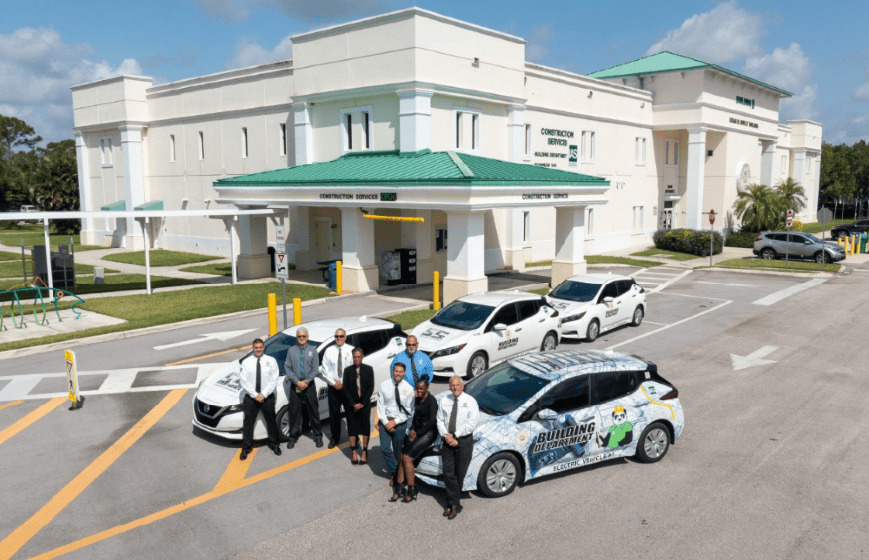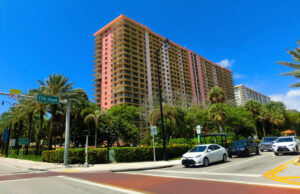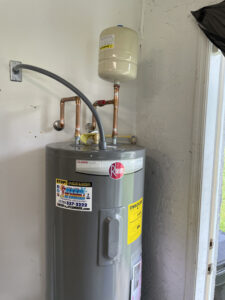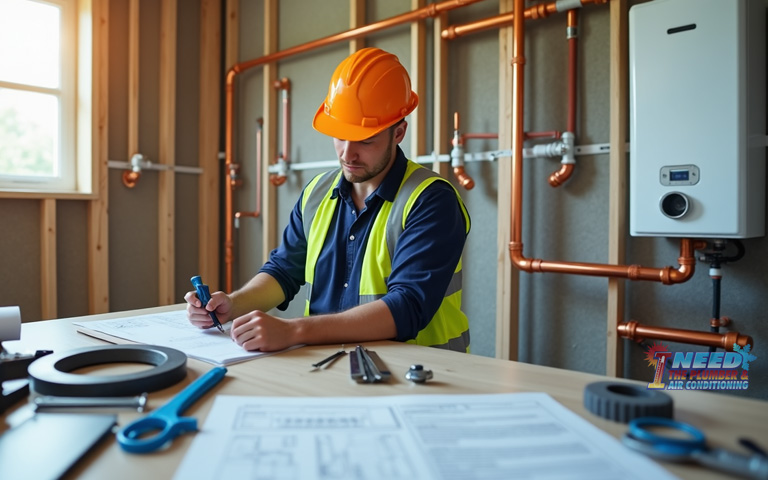A plumbing system means more than pipes and fixtures in your home. It represents a vital component that impacts your property’s value, safety, and everyday functionality.
Homeowners need to understand Port St Lucie plumbing regulations when they plan bathroom renovations, install new water heaters, or fix persistent leaks.
Licensed Port St Lucie plumbers will give a smooth experience that meets local requirements and helps you avoid mistakes that can get pricey.
The St Lucie County Building Department and City of Port Saint Lucie Building Department uphold strict standards. These standards protect homeowners and the community’s resilient infrastructure.
Local plumbing codes and regulations protect your investment and make your plumbing work last longer. This piece explains everything about local plumbing codes and compliance requirements for your residential property.
Understanding Port St Lucie Plumbing Permits

Building Department with Officials in Port St Lucie – Photo by www.cityofpsl.com
Getting your plumbing work done right in Port St Lucie starts with understanding the permit requirements and local regulations. The Building Department’s guidelines tell you exactly what permits you need and how to get them.
Understand where you need to go to pull a permit in Port St. Lucie for plumbing work – Permitting information for properties located within the City of Port St. Lucie can be found at http://www.cityofpsl.com or by calling (772) 871-5132. The permitting office for the city is located in Building B of the City Hall Complex at 121 SW Port St.
When Permits Are Required
Your home’s plumbing system needs permits for most installations and modifications. This applies to new fixtures, water heaters, or any major changes to existing plumbing. The simple residential plumbing permit costs $79.00, which has processing fees. Commercial properties have fees starting at $104.00 for single fixtures and $179.00 for up to 10 fixtures.
Exemptions for Minor Repairs
You won’t need permits for several minor repairs and replacements.
These include:
- Replacing existing faucets (without removing drywall)
- Installing an exact replacement sink in the same location
- Replacing water closets in the exact location
- Repairing water heater heating elements
Application Process and Fees
The permit application needs specific documentation and follows strict guidelines.
Residential plumbing permits require:
- A completed permit application with property details
- Two copies of plans/drawings (for commercial projects)
- Recorded Notice of Commencement for work valued at $5,000 or more
Online Application Options: Registered contractors can now submit permits through the Contractor E-Permitting Portal. The portal lets you upload revisions and schedule inspections. A 2.35% service fee applies to all online payments.
Important Timeline: The Building Department considers your permit application abandoned if you don’t pursue it within 180 days of filing. You can request extensions up to 90 days. All residential building permits must be completed within three years after they are issued.
The Building Department reviews applications promptly. You’ll receive written notification if your application doesn’t meet the requirements, explaining why it was rejected.
Residential Plumbing Requirements
Port St. Lucie’s residential plumbing must meet specific standards that ensure safety and efficiency in Florida’s unique climate.
A proper understanding of these requirements plays a significant role in your home’s plumbing system maintenance.
Single-Family Home Regulations

Single Family Home
Single-family residences need one kitchen sink, one bathroom facility, and one automatic clothes washer connection per dwelling unit. The City of Port St. Lucie’s Utility Systems Department mandates all utility installations to keep a minimum 10-foot horizontal separation from structures when excavations are 6 feet or less deep.
Multi-Family Building Standards

Multi-Family Building
Multi-family properties have additional requirements.
Each apartment building needs:
- One dwelling unit kitchen sink
- One bathroom facility per unit
- One automatic clothes washer connection per 20 dwelling units
Access to required facilities in shared spaces must remain clear. Routes cannot pass through kitchens, storage rooms, or closets.
Water Heater Installation Guidelines
Your Port St. Lucie home’s water heater installation needs careful attention to safety and efficiency.

New Water Heater Passes Permit
These requirements include:
- A drain valve at each tank-type water heater’s bottom
- Storage tanks need proper pan installation where leaks could cause damage
- Pans must be at least 1½ inches deep with a ¾-inch diameter drain pipe
- Domestic use temperature control cannot exceed 140°F
Safety Requirements: Garage-installed water heaters must have their ignition source at least 18 inches above the floor. You need either separate pressure and temperature relief valves or a combination valve to protect against pressure and temperature issues.
Note that all utility projects must follow local, state, and federal regulations. Your water heater needs easy access to maintenance and replacement to ensure long-term functionality and safety.
Commercial Plumbing Regulations
Commercial plumbing regulations in Port St Lucie set strict standards that protect business operations and public infrastructure. These requirements help you keep your property compliant with local codes.
Business Property Requirements
Contractors who work on commercial plumbing systems must have a valid Certificate of Competency, which is different from a standard Occupational License.
Your renovation or modification plans need proper permits. Starting work without them leads to heavy penalties, including a $100 Stop Work Order fee and double permit fees.
Industrial Facility Standards
The Public Works Department monitors infrastructure compliance in these areas:
- Drainage system requirements
- Utility installations
- Site grading standards
- Roadway improvements
Your facility must comply with Title VI of the Port St Lucie Code of Ordinances for wastewater systems. The city does not allow discharge containing:
- Pollutants harmful to wastewater facilities
- Untreatable contaminants
- Substances hazardous to personnel or public safety
Grease Trap Regulations
Proper grease trap installation and maintenance is a vital part of food preparation or processing facilities. These are the most important requirements:
Installation Standards:
- Professional installation by certified contractors
- Proper sizing based on facility needs
- Compliance with local placement regulations
Maintenance Guidelines: Regular inspections should check for:
- Signs of wear or damage
- Proper grease capture efficiency
- Structural integrity
- Odor control effectiveness
Your grease trap’s replacement timeline depends on usage patterns. You should watch for specific signs like persistent odors, corrosion, or decreased efficiency.
The city requires you to document all maintenance activities and allows random inspections of grease interceptors.
The Public Works Department performs unscheduled site visits to verify compliance.
Proper documentation and regular maintenance schedules will help you avoid violations and keep your system running smoothly.
Compliance and Enforcement
Your plumbing work must comply with Port St Lucie’s regulations through proper inspections and violation prevention.
The Building Division will give a guarantee that all work meets applicable current codes and standards.
Inspection Procedures
The online scheduling system is mandatory for plumbing inspections since phone requests aren’t accepted. These key requirements apply:
- Inspection requests must be made at least 24 hours in advance
- All permit documentation must be available on-site
- An adult (18 or older) must be present for interior inspections
- You can include special instructions like lock box codes when scheduling
Properties older than 20 years need a 4-point inspection that evaluates your plumbing system and water heater.
Common Violations and Penalties
Building code violations can lead to serious potential risks. The most frequent plumbing violations include:
- Incorrect material usage for plumbing systems
- Missing or improperly installed drain traps
- Inadequate spacing around fixtures
- Improper drain pipe slopes
- Incorrect water heater installations
Your work without proper permits will result in:
- Stop Work Order fees ($100)
- Double permit fees
- Potential Code Enforcement Board fines
Appeals Process
You have 30 days from the order’s rendition to contest a decision. The appeals process needs:
- Original Notice of Appeal
- Conformed copy of the order being appealed
- Appropriate filing fee
- Application for indigent status (if applicable)
Important Note: Personal checks aren’t accepted for appeal filings. The Florida Bar’s attorney search service can help you find legal assistance with documentation.
Staying compliant is easier than fixing violations later. Your plumbing system will meet local requirements and protect your investment through regular inspections and licensed professional work.
Closing Thoughts on Plumbing Code
Port St Lucie’s plumbing regulations protect property owners and the community with strict standards and clear guidelines.
These requirements cover both residential and commercial properties, from simple fixture installations to complex industrial systems. You need to understand permit requirements, inspection procedures, and compliance standards to protect your investment and avoid getting pricey violations.
The regulations might seem overwhelming with specific requirements for different property types and varying permit fees. We strongly recommend you call us today to get a licensed plumber who can answer your questions and evaluate the situation.
Your plumbing system needs proper maintenance and compliance with local codes to work efficiently and maintain property value.
You should schedule regular inspections, keep proper documentation, and work with qualified professionals to meet Port St Lucie’s plumbing standards and avoid penalties.
Frequently Asked Plumbing Regulation Questions
Do you need a permit to replace a water heater in Port St. Lucie, Florida?
Port St. Lucie, Florida, like most towns, requires a permit to replace or install a water heater. The need for permits and adhering to the correct codes is for your safety.
Do you need a permit to replace a toilet in Florida?
To replace a toilet, sink, or hot water heater in Florida, you generally need to get a plumbing permit before starting any new plumbing work or most replacement projects IF you are moving its location from the original spot. This ensures everything is up to code and safe for your home. It’s a step that might seem inconvenient, but it’s there to protect your property and your well-being.
Does Port St. Lucie, Florida have a noise ordinance?
Yes, Port St. Lucie has a noise ordinance in place. If a noise complaint is made, a code officer may inspect the property to determine if there is a violation. If a violation is confirmed, a notice will be issued to the party responsible.
Where should I file a notice of commencement in Port St. Lucie?
Notices of Commencement in Port St. Lucie must be recorded at the St. Lucie County Clerk of Courts, located at 250 NW Country Club Drive, Port St. Lucie, FL 34986.


